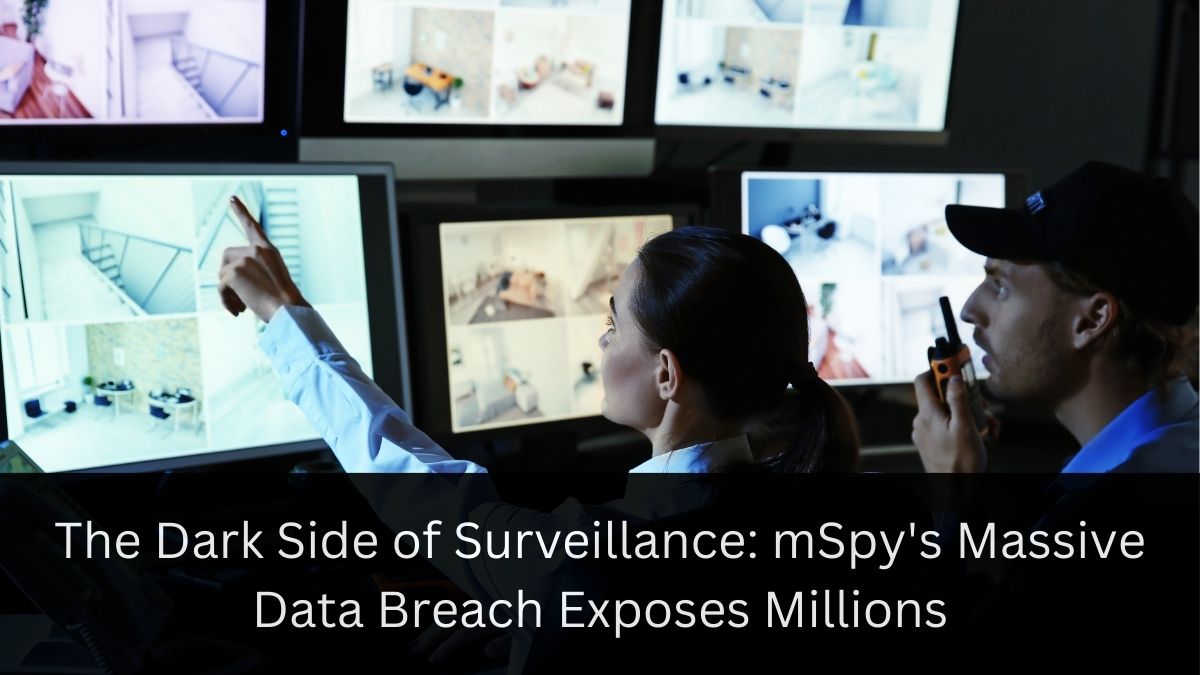Press Release
The Dark Side of Surveillance: mSpy’s Massive Data Breach Exposes Millions

In an era where digital privacy is increasingly under threat, the recent data breach at mSpy serves as a stark reminder of the risks associated with surveillance technology. This Ukrainian-based company, known for its phone spyware app, has found itself at the center of a cybersecurity storm that has exposed millions of its customers and raised serious questions about the ethics and legality of such surveillance tools.
The Breach: A Deep Dive into the Exposed Data
In May 2024, mSpy fell victim to a devastating cyberattack that laid bare the personal information of millions of its users. The breach encompassed a decade’s worth of customer support tickets, emails, and even personal documents. This treasure trove of sensitive data, stolen from mSpy’s Zendesk-powered customer support system, paints a troubling picture of the widespread use of surveillance technology.
The Scale of the Breach
The sheer volume of compromised data is staggering. Troy Hunt, the mastermind behind the data breach notification site Have I Been Pwned, added approximately 2.4 million unique email addresses from mSpy customers to his site’s catalog. However, this figure likely represents only a fraction of mSpy’s total user base, as it includes only those who reached out for customer support.
A Global Footprint
An analysis of the leaked data reveals that mSpy’s customers span the globe. Large clusters of users were identified across Europe, India, Japan, South America, the United Kingdom, and the United States. This global reach underscores the pervasive nature of surveillance technology and its appeal across diverse cultures and societies.
The Ethical Quagmire: Spyware’s Double-Edged Sword
mSpy markets itself as a tool for parents to monitor their children or for employers to keep tabs on their workforce. However, the reality is far more complex and ethically fraught.
The Stalkerware Dilemma
The term “stalkerware” has emerged to describe apps like mSpy, which are often used without the knowledge or consent of the target. This surreptitious surveillance raises serious privacy concerns and can be a tool for abuse in personal relationships.
High-Profile Users Exposed
Perhaps most alarming are the revelations about some of mSpy’s users. The leaked data showed inquiries from senior U.S. military personnel, a federal appeals court judge, and even a county sheriff’s office. These instances of potential misuse by those in positions of power highlight the need for stricter regulations and oversight in the surveillance technology industry.
The Company Behind the Curtain: Brainstack Unveiled
Until now, the operators of mSpy had remained largely hidden from public view. The data breach, however, has exposed the parent company as a Ukrainian tech firm called Brainstack.
A Web of Deception
Brainstack’s website makes no mention of mSpy, instead referring vaguely to work on a “parental control” app. This deliberate obfuscation speaks to the controversial nature of the spyware business and the lengths companies will go to shield themselves from scrutiny.
The Human Element
The leaked data also revealed the identities of Brainstack employees involved in mSpy’s operations. This exposure of real names and contact information adds a human dimension to the story, reminding us that behind every piece of technology are individuals making decisions that impact millions.
Legal and Ethical Implications
The use of spyware like mSpy exists in a legal gray area. While the act of buying such software isn’t inherently illegal, using it to monitor someone without their consent often violates wiretapping laws and other privacy protections.
A History of Scrutiny
This isn’t mSpy’s first brush with controversy. The company has faced data breaches before, in 2015 and 2018. These repeated incidents raise questions about the company’s commitment to data security and its ability to protect the sensitive information it collects.
Law Enforcement Interest
Interestingly, the leaked data also showed inquiries from law enforcement agencies, including an FBI agent seeking information about a suspect in a criminal case. This highlights the complex relationship between surveillance technology companies and law enforcement, blurring the lines between private and state-sponsored surveillance.
The Broader Implications: A Call for Action
As we grapple with the fallout from this breach, it’s crucial to consider the broader implications for privacy and cybersecurity.
The Need for Regulation
The mSpy incident underscores the urgent need for stronger regulations governing the development, sale, and use of surveillance technology. Without proper oversight, these tools can too easily become instruments of abuse and privacy violation.
Consumer Awareness
This breach serves as a wake-up call for consumers. It’s imperative that individuals become more aware of the risks associated with surveillance technology and take steps to protect their digital privacy.
Corporate Responsibility
Companies dealing in sensitive data must be held to higher standards of security and transparency. The repeated breaches at mSpy demonstrate a failure of corporate responsibility that cannot be ignored.
The mSpy data breach is more than just another cybersecurity incident. It’s a stark reminder of the hidden world of digital surveillance that exists all around us. As we move forward, we must ask ourselves: At what cost do we sacrifice our privacy for the illusion of security?
It’s time for a serious conversation about the role of surveillance technology in our society. We need stronger regulations, better corporate accountability, and increased public awareness. Only then can we hope to strike a balance between technological advancement and the fundamental right to privacy.
What steps will you take to protect your digital privacy in light of these revelations? The power to shape the future of digital surveillance lies in our hands. Let’s use it wisely.
